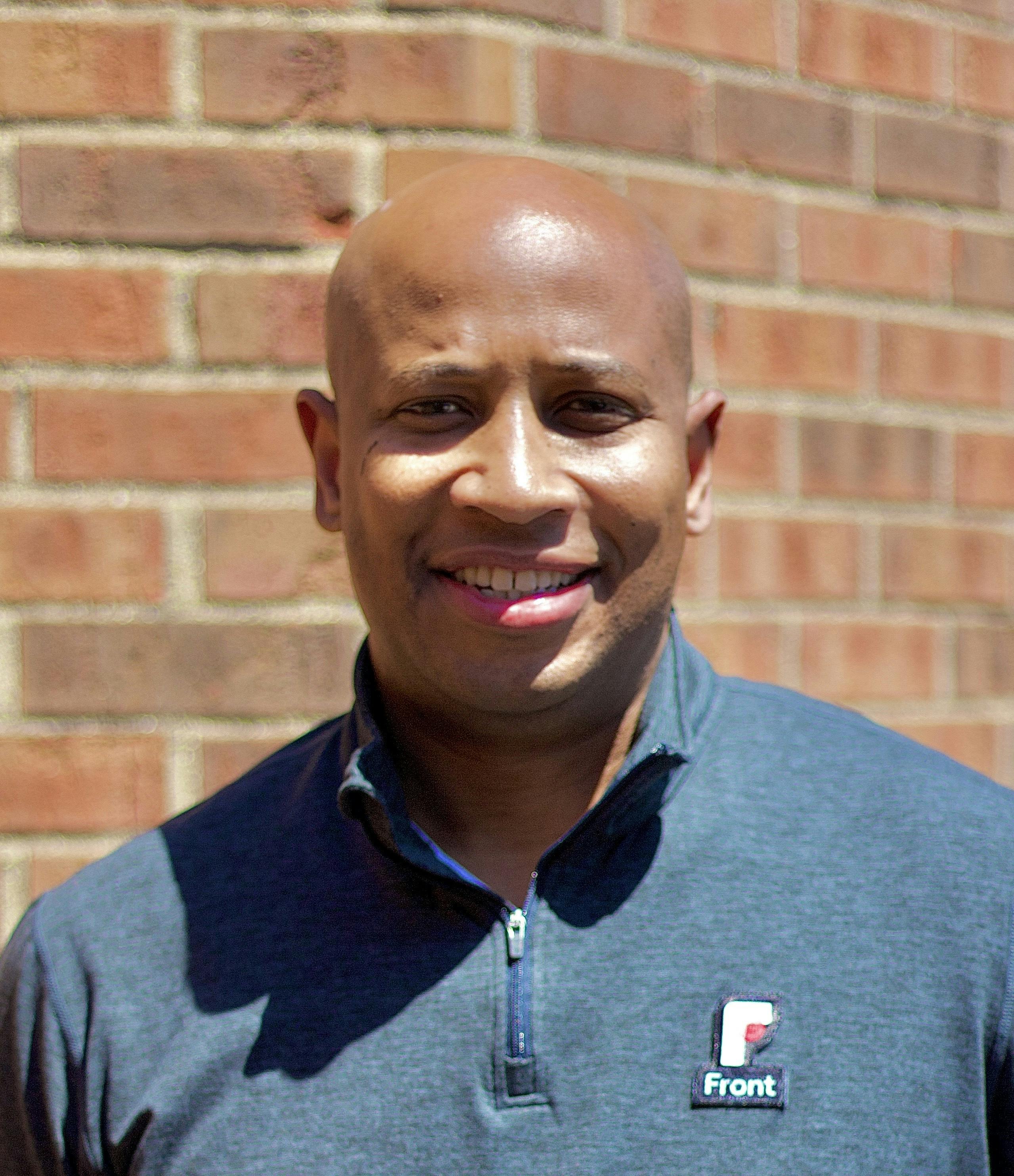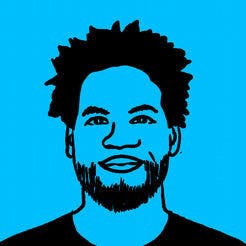This year for Juneteenth our Front Resource Group, Black at Front, hosted a fireside chat with DEI executive Marcus Bryant. As we discussed history, culture, and the importance of diversity today, it made me think back to a time where events like this weren’t popular in the workplace. I know there is much more work to be done around celebrating and embracing black Americans in the workplace, but I am proud to say it’s a start. I’m dedicated to helping people of color get an opportunity to tell their story and share practical advice that could help company leaders and black Americans that want to start a career in tech.
I got the chance to speak to Omar Jones co-lead of Black at Front and Mid-market account manager, as we celebrated and reflected on Juneteenth this year. We thought it would be great to formally announce our FRG. As part of our FRG efforts, Omar shared some tactical ways those in management positions can make employees feel a sense of belonging at work, especially black employees and people of color.
Make time to get to know each other beyond work topics
In some shape or form, every company has a mission to get more people of color into their organization, the tricky part is figuring out how to do that. It’s not just about getting people of color into the organization but how to retain them.
I’ve been a part of companies where some Black Americans have found it hard to be themselves in the workplace and I’ve been a part of some that have made it an effort where every employee no matter their culture can bring their full self to work. It’s about an effort being made on both sides, leadership, and employee. Getting to understand one another as human beings beyond color is a great start for organizations to hire more people of color, and for retention to grow. Making time to get to know each other beyond work topics makes this much easier and the relationships stronger.
Acknowledge what’s happening in the world outside of work
When it comes to the many devastations the world has seen in these past couple years around race, Black Americans — just like any race — want to know that they are valued. One way leaders can show they care is by having the knowledge and the acknowledgment that something just happened in the world that may impact a certain group of people in your workplace.
I don’t think any special treatment needs to be given, but a simple acknowledgment that this group of people may be dealing with something today. Reaching out to see if that employee could use additional support from their leaders can be deeply meaningful, even if there’s nothing you can really do besides be there for them.
When the protest and riots were going on in response to George Floyd’s death, there were several leaders at Front that reached out to the black employees during work and outside of working hours just to check-in. Things like that are great examples of how leaders can show they care and acknowledge that a group of people might be impacted by something going on in the world.
Organize ERGs — and make leaders support a priority
When leadership attends ERG groups, it sends a powerful message throughout the organization. It shows that this is something they believe in and want to support. Change in corporations happens at the top first and then at the bottom.
It has been great to see the leaders at Front — including our CEO — make the effort to attend Q&As and speaker panels around Juneteenth. It has given me the confidence to believe that there is an effort to understand people of color and how our leaders can better support us and our journey in the workplace and as human beings.
The ERG groups at Front have also given us the opportunity to create deeper relationships outside of work. They give us a safe space to discuss current issues and struggles we may be going through, but also celebrate joyful moments together.
No special treatment needed
Whenever I get a new manager they always ask me, “How do you want to be managed or how would you like to be treated?” My response is always the same, “Like a person.”
The treatment across the board should be the same for everyone. I don’t need special privileges because I am black, I just want to be treated like a person, the same as you want to be treated.
It works both ways, and the first step is getting to know the person. Just as much as the leader should get to know their employee, the employee should get to know their leader. Removing any stigma or stereotypes and getting to know each other will get the relationship started on the right foot.
Everyone deserves a workplace where they feel like they belong
No person of color should be put in a box. We all have different experiences. Every interaction won’t be the same, and I think if more leaders take the time to get to know their employees that are of color, they may be surprised by what they learn.
And on the other hand, employees should learn about their leaders, ask questions, and voice their opinions. We are people, no matter our color. We all come from different walks of life. Looking at others as people before color will continue to be the difference maker in how companies go about hiring and retaining people of color in the workplace. Everyone deserves a workplace where they feel like they belong, and at Front this will remain one of our top priorities in all our hiring initiatives.
I loved hearing Omar’s perspective on inclusivity, and what’s great about Front is that so many of us feel empowered to talk about these personal subjects in a public space.
If you want to read more articles like this, check out a recent article about Bringing your whole self to work by our Global VP of Sales Strategy & Operations, Shriya Ravikuma. She shares four pieces of advice that could inspire your career journey.
Written by Jonny Parker











